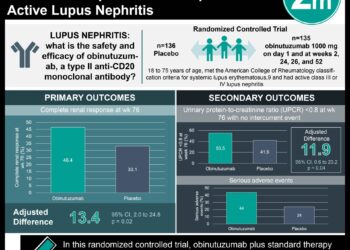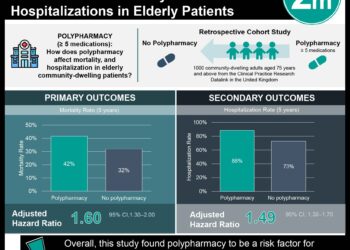[Physician Comment] The extent of C. difficile infections may not differ in light of immune status
Image: PD
Study author Dr. David B. Stewart, M.D. talks to 2 Minute Medicine Penn State Milton S. Hershey Medical Center
 “It is not uncommon for patients in the midst of chemotherapy for hematologic malignancies to develop C. difficile colitis (CDC) due to their immunosuppression, their frequent need for antibiotics, and their need for frequent hospitalizations. These patients are assumed to have a worse outcome with CDC due to their risk factors for infections, but the data substantiating this outlook is surprisingly sparse.
“It is not uncommon for patients in the midst of chemotherapy for hematologic malignancies to develop C. difficile colitis (CDC) due to their immunosuppression, their frequent need for antibiotics, and their need for frequent hospitalizations. These patients are assumed to have a worse outcome with CDC due to their risk factors for infections, but the data substantiating this outlook is surprisingly sparse.
The present study demonstrates that even severely immunosuppressed patients who are profoundly neutropenic will actually fare in a manner comparable to immunocompetent patients. Interestingly, while neutropenia may promote the development of a variety of infections, including CDC, the full effect of C. difficile toxins, such as toxin A, requires functional neutrophils. It may be the case that while immunosuppression poses a risk for the development of CDC in general, that it serves as a protective factor against fulminant forms of CDC in particular, as the study demonstrates a lower colectomy rate in the immunocompromised group, and with similar rates of mortality between the cohorts.”
Key findings:
- Comparing immunocompetent patients to those with haematological malignancies who contract C. difficile colitis (CDC), there appears to be no difference in disease outcomes including ICU admission, vasopressor or intubation requirement, kidney injury, and death.
- Patients without malignancy required significantly higher rates of colectomies, highlighting the possible benefit of diminished immunity on more fulminant forms of CDC.
Primer: The anaerobic, spore-forming, Gram positive bacillus Clostridium difficile made its first impression as a cause of antibiotic-associated diarrhea in the 1970s. Its formation of spores, allowing it to remain viable in desiccated environments and resistant to gastric acids, is the sine qua non of C. difficile’s contact-based transmission. Recent antimicrobial use (even as low as a single dose) remains the most important risk factor for C. difficile colitis (CDC), although its association with antineoplastic therapy is also apparent. With both the liberal use of empirical antibiotic therapy and the rising incidence of malignant disease, C. difficle is becoming a significant player in the realm of nosocomial infectious diseases. The spectrum of disease orchestrated by C. difficle and its toxins ranges from mild diarrhea to systemic inflammation (including significant leukocytosis and bandemia) and hemodynamic collapse, the latter syndrome referred to as fulminant colitis and occurring in a significant minority that occasionally involves the absence of diarrhea due to severe colonic dysmotility. Immunosuppression has been an oft-cited characteristic for the development of C. difficile diarrhea and fulminant colitis. Nevertheless, little has been studied on the potential outcomes of cancer patients receiving chemotherapy and contracting CDC, patients whose immune systems would be compromised.
For further reading, please see the following studies:
- Schaier M, Wendt C, Zeier M, et al. Clostridium difficile diarrhoea in the immunosuppressed patient: Update on prevention and management. Nephrol Dial Transplant 2004;19:2432–2436.
- Raza S, Baig MA, Russell H, et al. Clostridium difficile infection following chemotherapy. Recent Patents on Anti-Infective Drug Discovery 2010;5:1-9.
This [retrospective, cohort] study: Patients with haematological malignancies and CDC (confirmed through both clinical symptamotology and positive stool samples) were identified between 2004 and 2009. Two hospital-admitted cohorts were established (each with 49 patients): 1) a cancer group (with haematological malignancies having received chemotherapy within 30 days of CDC diagnosis) and 2) a non-cancer group (with no malignant or HIV history). Demographics, including comorbidities, were similar between the two groups. The mean WBC as measured during the entire hospital course for the cancer cohort was significantly lower than the non-cancer cohort (p=0.005). Between the two groups, there were no significant differences found in ICU admissions, the need for intubation, the need for vasopressors, acute kidney injury, the need for hemodialysis, and death. CDC CT findings also did not differ. Significant differences included the need for colectomy among non-cancer patients (p<0.04) and an increased length of stay in the cancer patients (p=0.001).
In sum: The study shows that, in general, the outcomes for CDC diagnosed among cancer and non-cancer patients are not significantly different with respect to poorer outcomes. What was found to be significantly different – aside from a length of stay that was longer in the cancer population due to cancer-related care and not CDC – was, paradoxically, the increased incidence of colectomy in the non-cancer cohort.
The study does not comment on the patients’ intrinsic immunity at the time of CDC diagnosis. Immune status (as defined by their leukocyte levels) is only significantly different throughout the entire hospital stay. Furthermore, 62% of patients at the time of CDC diagnosis were receiving G-CSF to correct neutropenia above an ANC of 1,000 cells/μL. With these factors in mind, the immune statuses of both cohorts may have been more similar at the time of diagnosis, which would presumably be a significant player in determining the outcome of the CDC, although patients with haematological malignancy do have a diminished functional quality of leukocytes. Additionally, differing antibiotic regimens were used throughout (including oral/IV metronidazole, vancomycin, or in combination, as well as antimicrobials for neutropenic precations), whose efficacies differ and influence outcomes.
Nonetheless, this study effectively highlights the limited understanding we have with respect to immune status and C. difficile infections, hypothesizing that the immune system is both a risk factor and a protective factor against the development of serious CDC; while a diminished leukocyte count may certainly promote CDC, the lack of an inflammatory response it affords may very well prevent the disease from assuming a fulminant course.
Please click to read in Journal of Gastrointestinal Surgery
Written by [JDP] and [AC]
© 2012 2minutemedicine.com. All rights reserved. No works may be reproduced without written consent from 2minutemedicine.com. Disclaimer: We present factual information directly from peer reviewed medical journals. No post should be construed as medical advice and is not intended as such by the authors or by 2minutemedicine.com. PLEASE SEE A HEALTHCARE PROVIDER IN YOUR AREA IF YOU SEEK MEDICAL ADVICE OF ANY SORT.




